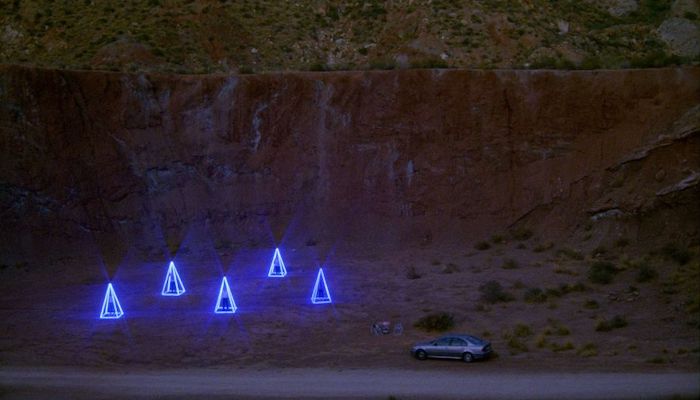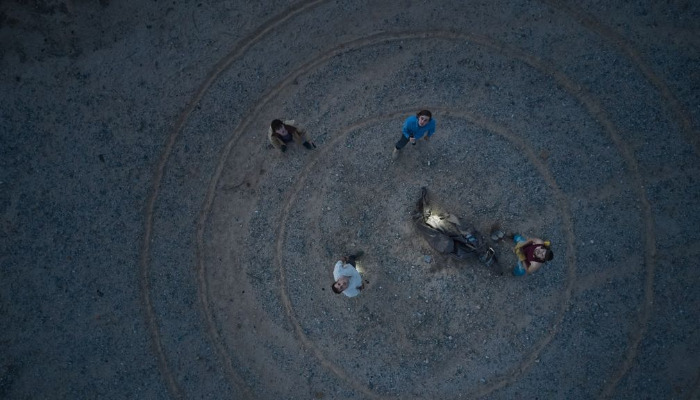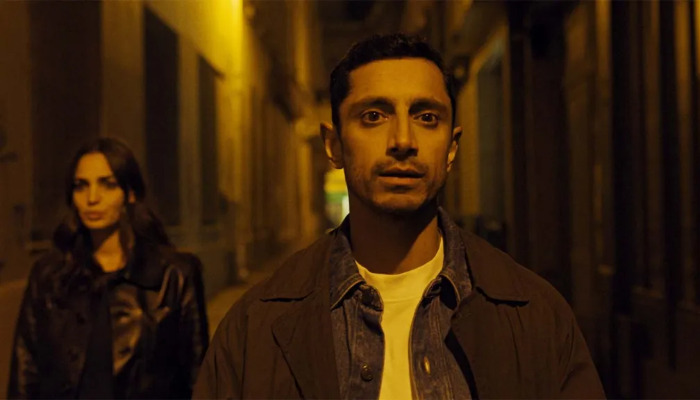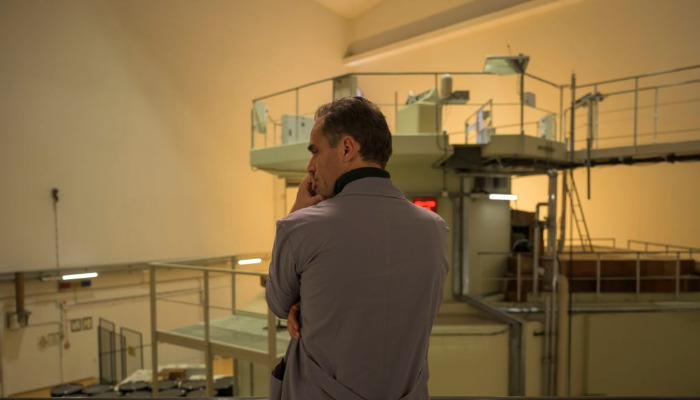Film Review: ESPÍRITU SAGRADO: A Deadpan Dramedy That Never Ascends to the Proper Plane [Locarno 2021]
Espíritu Sagrado Review
Espíritu sagrado (2021) Film Review from the 74th Annual Locarno Film Festival, a movie written and directed by Chema García Ibarra, starring Nacho Fernández, Llum Arques, Rocío Ibáñez, and Joanna Valverde.
The universe is full of mysteries that intrigue and terrify us, and there are some who will do anything to seek those answers out … as well as others who’ll use that passion to their own insidious advantage. Chema García Ibarra attempts to showcase that trepidatious balance of desires in his new film Espíritu sagrado (Spanish for “The Sacred Spirit”), but the film loses its own identity through an ineffective balancing act of thematic endgames.
In a small town in Spain, Vane, the daughter of Charo (Joanna Valverde) and the twin sister of Veró (Llum Arques), has been missing for weeks. Despite the local authorities’ efforts and frequent news reports about her, the investigation has turned up very little.
Meanwhile, Charo’s brother José Manuel (Nacho Fernández), is distraught over the loss of Julio (José Ángel Asensio), a local real estate broker and former leader of OVNI Levante (“UFO Lift”), a group of UFO enthusiasts of which José Manuel was a member. Tasked with leading the group in Julio’s absence, José Manuel seeks to carry out the mission of contacting extraterrestrials and awakening an “ancestral” spirit on Earth.
Loosely connecting the two adult siblings is their mother (Rocío Ibáñez), a former psychic who now finds herself wheelchair-bound and partially mute following a stroke. She lives with José Manuel in his apartment, which is decked out with Egypt-centric décor (including a poster featuring the Great Pyramids as giant spacecrafts), where he takes care of her after his day job as the owner of a little Egyptian-themed café (with its own cast of weirdo regulars). Charo brings Veró there for the child to reestablish a relationship with her grandmother, and so that she can also mend her own estranged bond with her mother.
Unbeknownst to Charo and José Manuel (and even Veró) their spiritual paths intersect more than they could ever expect, leading to enlightening yet unsettling revelations.
Ibarra’s deadpan sense of quasi-surreal humor would be very much at home in the Greek Weird Wave, making his location within Iberian cinema a bit of a geographical oddity. Normal-looking people go about their everyday and not-so-everyday chores with an astute impassivity, all set to slightly-washed-out imagery that rarely tries anything photographically daring. José Manuel and his group of ufologists are the pinnacle of this wooden aura, with Fernández rarely ever breaking his stoic concentration.
However, unlike that of a Lanthimos or a Tsangari, Ibarra’s writing never conjures anything but the occasional chortle. There’s an incredible dryness to the world of Espíritu sagrado that makes it hard to digest, especially since its sense of monotony makes doing so a tiresome task. Not only that, but by the time the ending rolls around with its truly shocking twist the film’s imbalance of tone is made starkly apparent. It reveals itself to be only insipid quirkiness before abject tragedy, making not for dark humor nor horror-comedy but rather just a confusing disappointment.
Though that’s not to say that the ending doesn’t put some of Ibarra’s topics into sharp focus – primarily about the alluring nature of cults, and how abusive people will manipulate lonely and obsessive individuals into carrying out their dirty deeds by teasing a sense of belonging. The final scene really choreographs such impending spiritual damage, as José Manuel finally feels at peace even though we as the audience know a major storm is about to swallow him up. Yet that terrifying revelation is counterintuitive to the lighthearted weirdness that takes up the vast majority of Espíritu sagrado’s runtime, and the jarring transition feels out of place, as if we the audience have been deceived – like, ethically-speaking, not like we’ve simply been thrown for a fun, puzzling loop.
Ultimately, Espíritu sagrado is periodically peculiar in how it defies genres and offers the potential to shock, but that conflict of tone is more to its detriment than it isn’t. It’ll most likely offer ascension to only the most patient among us.
Rating: 5/10
Leave your thoughts on this Espíritu sagrado review and the film below in the comments section. Readers seeking to support this type of content can visit our Patreon Page and become one of FilmBook’s patrons. Readers seeking more Fantasia International Film Festival news can visit our Locarno Film Festival Page, our Film Festival Page, and our Film Festival Facebook Page. Readers seeking more film reviews can visit our Movie Review Page, our Movie Review Twitter Page, and our Movie Review Facebook Page. Want up-to-the-minute notifications? FilmBook staff members publish articles by Email, Twitter, Facebook, Instagram, Tumblr, Pinterest, Reddit, and Flipboard.
Related Articles
FilmBook's Newsletter
Subscribe to FilmBook’s Daily Newsletter for the latest news!













